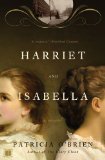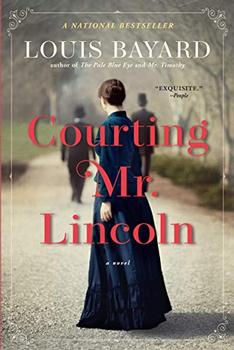Summary | Excerpt | Reading Guide | Reviews | Beyond the book | Read-Alikes | Genres & Themes | Author Bio

"Decency requires the truth and love requires a lie." This was
the moral dilemma Isabella Beecher Hooker faced when brother Henry Ward Beecher,
the most celebrated and famous preacher of the 19th Century, went on
trial for adultery. Isabella chose to take the decency route and this choice
cost her the friendship of her beloved sister, Harriet, who insisted her brother
was innocent of charges. This question is at the heart of this story of two
sisters and how best to serve their love for their brother—through loyalty or
honesty?
The book's action takes place in two days of March 1887. Henry Ward Beecher is
dying as the family gathers near and the public waits at his doorstep. But in
flashbacks, through the alternating voices of Harriet and Isabella, the reader
is taken back to the year 1872 where we come to intimately know the members of
this powerful literary and political family. To put these events into the
perspective of today's culture it has been said that the Beechers were the
Kennedys of the 19th Century. Everything they did was newsworthy.
When Henry is put on trial for adultery, it was called the Trial of the Century.
As if this isn't enough to make the story interesting, the reader is given intimate details of real-life characters such as Samuel Clemens, Susan B. Anthony, Frederick Douglas and Julia Ward Howe.
One only has to recall the very recent presidential election of 2008 where potential candidates were both a woman and an African-American to truly appreciate the actions of these early Americans. With their dedication to a cause and the courage to act upon their beliefs, often at great risk to themselves, they laid the ground work in fields of women's suffrage and abolition. They blazed trails for future Americans to participate fully in government, regardless of sex, race or creed.
Although the history is rich and accurate, (actual transcripts of the trial are
woven into the story), the beauty of this story lies in O'Brien's ability to
capture the external events while giving the reader a glimpse into what she
imagines was in the heads and hearts of these noble people. Although they were
influential in shaping America's character in the 19th Century,
O'Brien reminds us that even the most brilliant icons are only human.
It is also a page-turner in that the reader wants to know the outcome of the
trial and more importantly the fate of the sisters' relationship. Isabella has been banned from the Beecher home by Henry's wife, Eunice, but will she be
allowed one final meeting with the brother she loves on his deathbed? Does his
death reunite the sisters or prolong their estrangement?
There are many good reasons to recommend this book but perhaps it's greatest strength is that through the skillful characterization of Harriet and Isabella I could understand why each one felt the way she did. Their actions seem perfectly justified based on the background we are given in their formative years, not only as individuals but as the role they played within the family unit. It's amazing that against the broad background of sweeping historical events, O'Brien's attention to personal and intimate details is what puts the reader exactly where they want to be--immersed in a great story.
Patricia O'Brien is the author of the critically acclaimed novel The Glory
Cloak and co-author of I Know Just What You Mean, a New York Times
best-seller.
When asked about her writing process for Harriet & Isabella, Ms. O'Brien
says, "The most important process at the beginning was deciding what to discard.
The Beecher saga is incredibly rich. The connection I needed to Harriet was the
gold slave bracelet given to her by the Duchess of Sutherland. I had the great
satisfaction not only of tracking it down on the Internet in the listed contents
of boxes from Beecher repositories, but of briefly slipping it over my wrist and
wondering how Harriet felt the night it was placed on hers."
"Another part of weaving the past into my story was walking the streets of
Brooklyn Heights, especially on a snowy night when it's easier to imagine
carriages clattering down the streets and gaslights flickering behind the
windows of the brownstones. Being on the site where history happens anchors
imagination."
When asked what she hoped the reader would take away from this story, her reply
speaks to the heart of the story: "I hope in an era where sound bites pass for
wisdom and where certitude is somehow a virtue, that readers will reflect a
little on the ambiguities of the human heart. In real life, it isn't always easy
to know what is the "right" thing to do. Motives can be mixed, truth can be
murky, and loyalty can be blind. It's not just about the frailty of great
people. It's about all of us."
![]() This review was originally published in The BookBrowse Review in January 2008, and has been updated for the
January 2009 edition.
Click here to go to this issue.
This review was originally published in The BookBrowse Review in January 2008, and has been updated for the
January 2009 edition.
Click here to go to this issue.

If you liked Harriet and Isabella, try these:

by Louis Bayard
Published 2020
From the prizewinning author of Mr. Timothy and The Pale Blue Eye comes Courting Mr. Lincoln, the page-turning and surprising story of a young Abraham Lincoln and the two people who loved him best: a sparky, marriageable Mary Todd and Lincoln's best friend, Joshua Speed.

by Robin Oliveira
Published 2019
From the New York Times bestselling author of My Name Is Mary Sutter comes a rich and compelling historical novel about the disappearance of two young girls after a cataclysmic blizzard, and what happens when their fate is discovered.
The worth of a book is to be measured by what you can carry away from it.
Click Here to find out who said this, as well as discovering other famous literary quotes!
Your guide toexceptional books
BookBrowse seeks out and recommends the best in contemporary fiction and nonfiction—books that not only engage and entertain but also deepen our understanding of ourselves and the world around us.